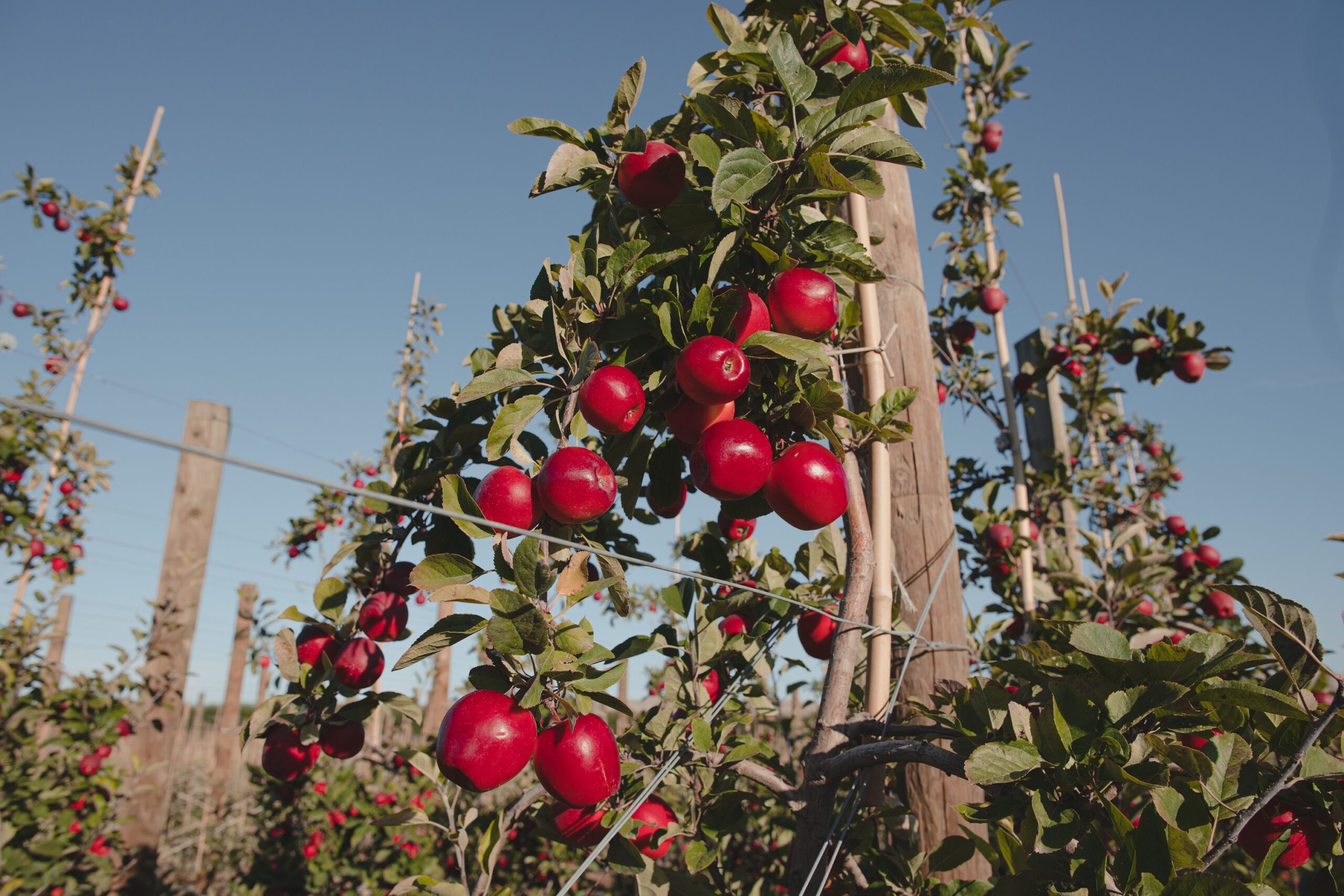By Annette Scott,Farmers Weekly
Copyright farmersweekly

Reading Time: 3 minutes
By Annette Scott and Richard Rennie
The operators of a newly planted Canterbury Superfund apple orchard remain upbeat about the future of its Rockit apple crop – but in the North Island orchardists are ringing alarm bells.
FarmRight, the company commissioned to operate the fund’s Torea orchard at Pendarves, has planting well underway for a 150 hectare orchard, of which 125ha is the licensed Rockit apple variety.
This time next year 900,000 trees will have been planted, with 70,000 bins of apples heading to Nelson for packing amid plans to ultimately include a packhouse on the Ashburton site.
FarmRight chief operating officer Gavin Tayles is confident, despite some apparent hiccoughs with Rockit up north.
“Our take is Rockit has potentially underestimated the capital required to build market channels before the supply has come on after the early successes in the market, and additional capital will be required to invest into market growth, for which there is a plan in place,” Tayles said.
“We have confidence in the plan, and we will be monitoring progress to the execution of it.”
He acknowledged significant growing challenges over the past two years resulting in volumes of poor fruit quality, exacerbating downward pressure on grower returns.
“We will need to focus on what we can influence on our revenue line, which is size and quality that aligns with the market specifications.
“We will then be relying on Rockit to build market demand as our supply matures in 2029-2030.”
Tayles said the modern trellis growing systems used on Torea gives increased ability to execute and to meet fruit specifications.
“We see that Rockit is acutely aware of the situation and what they need to do, and they are taking steps in the right direction to deliver value to the brand.”
But established Hawke’s Bay Rockit growers are not feeling as optimistic about the variety’s future in their orchards, with several expressing concerns to Farmers Weekly.
Speaking on condition of anonymity, they said their concerns centred on continued low returns, oversupply of future Rockit apples to market, and challenges in maintaining the high margin needed to grow the specialty brand.
Orchardists growing Rockit apples have paid licence fees of $100,000 a hectare. Some have claimed the company has focused too much on growing supply with its ensuing licence revenue, rather than incrementally building demand and matching supply to that.
Despite major losses from Cyclone Gabrielle, the company has almost tripled its apple volume since then, aiming to export over 200 million apples this season.
Growers need to make over $1.00 for each five-apple Rockit “tube” to break even, and Rockit earlier forecast it would pay growers $1.80 a tube at the start of this March-February season.
But growers have since been told to anticipate a return from this season’s crop of only about 60c a tube.
One grower anticipated next year may be closer to 50c per tube.
“And that would be the third low year in a row, meaning I just can’t afford to keep going with the variety,” he said.
In late August Rockit CEO Grant McBeath told NBR the company’s plan to lift payment included selling this year’s harvest successfully. Growers claim only 60% of this year’s crop has been sold to date.
Other improvements he listed were supply chain improvements to reduce costs, and simplifying the business by reducing the number of product lines offered at retail.
The plastic tubes containing five Rockit apples each are retailed in Chinese retail outlets for about US$7 a tube, or five times the average apple per-kilogram price.
But key markets including China have faced tough headwinds due to depressed consumer demand post-covid and are only now starting to recover.
McBeath was not available by publication time to speak to Farmers Weekly about the issues growers have raised.
One industry insider said he anticipates Rockit will face a “wall of apples” to come from maturing orchards in the next three years, possibly with a tripling of supply as a result.



